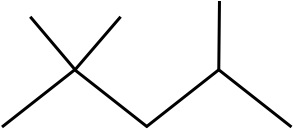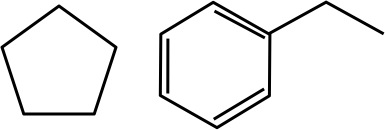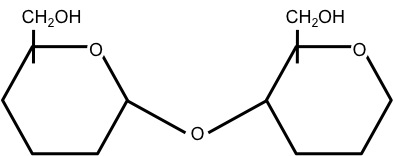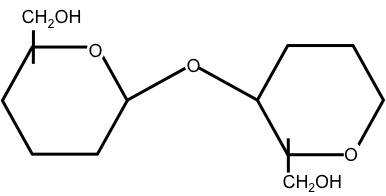
The nervous tremor in River’s voice belied the confidence of her words.
“That wasn’t so hard, was it,” she said, dumping a pile of Twinkies on the living room carpet.
Christina double-checked the deadbolt on the front door and closed the blinds.
“It was stupid and illegal,” she said. “We’re going to get caught.”
“Lighten up, Chrissy,” River said. “Even if the police can get to the scene, pretty soon half the neighborhood is going to follow in our footsteps. With a ransacked store and a hundred culprits, who’s going to identify us?”
“Cameras, maybe,” Christina said, but she guiltily acknowledged that the city’s public safety officers had a lot bigger problems to contend with than a Seven Eleven heist.
“Welcome to the club, Chrissy,” Mickey said.
“Club?”
“Lawbreakers, baby. River and I have a long and distinguished record of civil and not-so-civil disobedience, but I think this is your first. And it’s a whopper.” He gave River a high-five.
Christina felt her face flush. “I am not like you. Robbing a store was not my idea.”
“If we’d waited until it was your idea, the place would’ve been cleaned out already,” Mickey said. “Desperate times, desperate measures and all that. In a couple of days you’ll be thanking me.”
“I will not.”
“Fine. Then you don’t have to eat any of this stuff.”
“I won’t,” Christina said stubbornly. She waved her arm over the scattered mess of junk food. “And for your information, you better hide all this because law enforcement is going to be on your tails.”
“I told you, they’re not going to find us,” River said.
“I’m not talking about the Seven Eleven,” Christina said with malicious delight. “They know about Neil and the sabotage at Jefferson Park.”
It was satisfying to see the stunned expressions on their faces. She continued.
“Dr. Chen was going to take the fall for the gas tank explosion, so I told him the truth. Somebody is gonna want to interview you about your ‘friend.’”
“You snitched on us?” River said.
“Heck yeah. But I didn’t say you did it, I just said you knew the guy who did.”
“You bitch.”
River clenched her fists. Mickey quickly intervened, laying a hand on River’s arm.
“Okay ladies, let’s keep it cool,” he said. “Chrissy, that was pretty low. But River, you have to admit the whole bomb thing was probably a mistake.”
“No, I’m glad Neil did it,” River said defiantly. “By stalling all those cars, just think how many tons of carbon those bacteria have kept out of the atmosphere. Christina says gasoline will never work again in L.A. If that doesn’t force a change in the way we use energy, I don’t know what will.”
“You’re so dumb,” Christina retorted. “There’s this thing called chemistry, River, and you just don’t get it.”
“Don’t you dare—“ River began, but Mickey stepped between them again.
“You two need to calm down,” he said, giving River a bear hug that was part affection, part restraint. He faced Christina. “Do you want to explain something to us?”
“It’s not worth the effort,” she said.
River snorted and Mickey said, “Look, we’ve got nothing to gain and everything to lose by fighting with each other. As far as I understand it, we’re in for a tough time over the next few days. Maybe weeks. Can’t we deal with it together? As a family?”
The magic word—family—drained Christina’s fury. She sat down at the kitchen table.
“All right. Let me tell you what I learned in the lab last night.”
River didn’t speak, but she came to the table and took a seat. Mickey shuffled around in the kitchen making iced tea.
“First, you need to understand what Dr. Chen designed these Syntrophus bacteria to do,” Christina said. “Syntrophus live deep underground in natural petroleum reservoirs, where there’s no oxygen and no light. The bacteria break down oil for food. Now, crude oil is a complex mixture of different hydrocarbon molecules. The most valuable hydrocarbons in petroleum are simple straight-chain alkanes like hexane.”
She grabbed a piece of paper and a pen and sketched the structure:

“But you also find branched alkanes, like isooctane.”

“And cyclic and aromatic compounds, which have carbon rings in them.”

“Plus many, many other molecules. All of these hydrocarbons are potential food sources for oil-eating bacteria, but any one species of bacteria can’t digest them all. In order to break down the different structures, the bacteria have to make the right enzymes.”
“That’s weird,” Mickey said as he placed a tall, icy glass in front of each of them.
“People are the same,” Christina said. “We break down sugars for food, but we can’t eat all the different sugar molecules that exist. For example, we have the enzymes to digest starch—like you find in potatoes.”
She outlined the shape of a molecule.

“But we can’t digest cellulose, a very similar chemical that’s found in cotton and wood.”

Christina continued. “Dr. Chen’s goal is to use bacteria to harvest energy from low-quality, hard-to-pump petroleum in tar sands. To maximize the energy produced, his bacteria need to eat a varied diet. The more kinds of hydrocarbons they can break down, the more energy they’ll release. So he set out to create a superbug, a genetically engineered form of Syntrophus that could eat most of the different molecules found in petroleum.”
“And he succeeded, I presume,” River said.
“With my help, yes. Our Syntrophus bacteria are the most efficient oil-eating microbes on the planet.”
“It never occurred to you that this might be a problem?” River said.
“No, because we had a built-in fail-safe. Syntrophus bacteria are killed by exposure to air. They can only eat oil in their natural habitat, deep underground.”
“But not anymore. Something went wrong.”
Christina fidgeted with her ponytail. “That’s right, the bacteria aren’t restricted to an oxygen-free environment anymore. Sometime after they escaped from our test facility in Jefferson Park, the bacteria changed.”
“Mutated?”
“Not exactly. More like, they learned a new skill from some friends.”
“We’re talking about itty bitty microbes here, right?” Mickey said.
“We are, but even bacteria have ways of sharing information. The information is in the form of genetic material. Bacteria can actually give some of their DNA to each other in a process called horizontal gene transfer. It happens in the wild. Last night I found DNA in my Syntrophus that wasn’t there before. The new DNA codes for aerobic survival.”
“Life in the presence of air,” River said.
“Yes,” Christina said. “The whole sorry affair began when Dr. Chen and I brought our Syntrophus to a shallow underground location, at the gas station. Then your friend Neil freed the Syntrophus from their prison. Then Syntrophus met some of the local soil bacteria who shared everything they know about living with oxygen.”
“So we’re all to blame,” River said.
“I suppose,” Christina conceded.
“Shit. What a mess,” Mickey said.